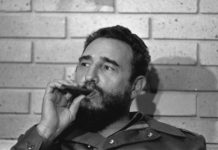Against the Wind: Diary of a Dissident Dubliner, J.A. O’brien, Sid Hara Publishers
This is a memoir of a working class writer, bricklayer, and member of the Republican movement. O’Brien grew up in the Dublin of the 1940’s and 50’s and worked intermittently in Britain before finally emigrating to Australia in 1968.
The book opens in 1941 with the author as a small child, his face pressed into his mother’s skirt, as a group of families stand on the steps of their south side Dublin tenement listening to the thud of Luftwaffe bombs dropping on the North Strand. As the bombs fall, his father and uncle discuss what must have been a most controversial question for Irish democrats, socialists and republicans of the era. Should they support Ireland’s neutrality or should they join in the fight to defeat fascism? The author was too young to understand it all.
O’Brien grew up in the south inner-city and went to St Louis’ School in Rathmines in the period quaintly referred to as the “Emergency”. His father was a bricklayer and his mother worked in domestic service and he tells a colourful and sometimes heartrending tale of the difficulties faced by working class families just to survive.
He also tells of the bullying brutality of teachers. The sadistic Mr Rafferty who would ‘crash his cane down on the desk’ to ‘hammer religion into them for their own good’ is a familiar figure to any Irish male born before 1972. (Corporal punishment was abolished in 1982).
However, O’Brien was fortunate in his home life. In particular, he was lucky enough to be raised by strong, loving but, above all, independent and left-wing parents who were not afraid to think for themselves or stand up for their rights.
Leaving school he became an apprentice bricklayer and there is a wonderful chapter on his initiation into the trade and into the union, called “Before the Green Cloth”.
While never having met the author, this reviewer went before the ‘Green Cloth’ of the Ancient Guild of Incorporated Brick and Stone layers in 1970, two years after O’Brien left for Australia. O’Brien’s account certainly resonated with this once-proud apprentice of the Ancient Guild.
O’Brien gives a vivid portrayal of the lot of skilled Dublin tradesmen in 1950s as they crossed the Irish Sea seeking employment. In England he rubbed shoulders with socialists and Spanish Civil War veterans and he greatly admired the class consciousness of the English working class. After a visit to a Yorkshire coal mine, he pithily observed ‘I will never waste the smallest bit of coal again’.
Unlike most Southern Irish Republicans of his era, or perhaps any era, O’Brien took the time to visit Northern Ireland, going to see conditions there for himself in August of 1954. His sympathy for the oppressed nationalist population in what he described as a ‘closed society’ is palpable. However, he had an interesting exchange with his ‘Da’. “They are surrounded by hostile forces, where it is well known and asserted that it is ‘A Protestant government (sic) for a Protestant people.”
The elder O’Brien replied, “If they feel oppressed they should try living in a Catholic-dominated system like we have down here. The Prods were right about Home Rule being Rome Rule, that’s for sure.”
O’Brien joined Sinn Féin and the IRA in the late 1950’s towards the end of ‘Operation Harvest’ otherwise known as the Border campaign. At a time when the Irish Labour Party was afraid to describe itself as socialist for fear of the wrath the Roman Catholic Church, he tried to influence his comrades to move to the left. He found that most IRA members were good potential soldiers but not political animals. It is clear that O’Brien greatly admired Sean Garland, Tomas MacGiolla and Cathal Goulding who, would succeed in moving the Republican Movement in a direction O’Brien would have applauded.
O’Brien left Ireland in 1968 and moved to Australia to find regular employment. It appears however his main reason for leaving was his rejection of a narrow-minded and bigoted society, writing that he ‘found the life in the stifling social and cultural conditions of Ireland hard to tolerate’.
The most pleasing thing about this readable, amusing and perceptive memoir is that O’Brien, who is clearly a scholar of literature, drama and history, weaves his erudition seamlessly into his life-affirming tale of working class life. In particular, his use of poetry and song is moving, never more so than when gathered with his fellow Dublin bricklayer republicans at the funeral of Sean South, he quotes Dominic Behan:
They told me how Connolly was shot in a chair
His wounds from the battle all bleeding and bare
His fine body twisted all battered and lame
That soon made me part of the Patriot game.
Fergus Whelan is a bricklayer and author who works for the Irish Congress of Trade Unions.





